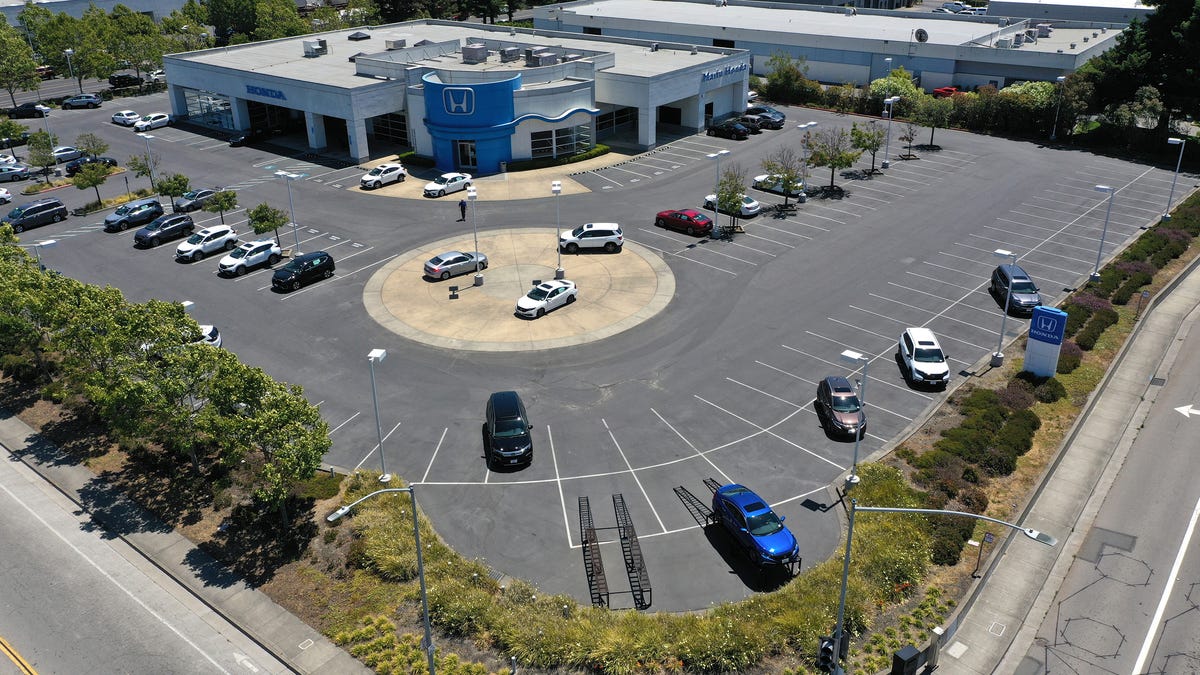The car industry's chip shortage is far from over
A major Japanese supplier said it won't be able to fill a backlog of orders anytime soon, citing ongoing bottlenecks in its own supply chain.

This scene at car dealerships is very common.
What automakers hoped would be a temporary setback simply isn't happening. According to a Friday Bloomberg report, major Japanese semiconductor chip supplier Rohm said it foresees chip shortages throughout next year. It's not that the company can't build chips quickly enough, but the fact that its own supply chains are involved in serious bottlenecks.
Speaking with the publication in an interview, Rohm CEO Isao Matsumoto said its lines continue to operate at 100% capacity as it works to fill backlogged orders from automotive customers. Ford, Toyota and Honda are three of its largest customers. However, the executive said orders are "overwhelming" and major investments to boost production won't create quick returns. The company will invest another $636 million to further maximize production, but equipment to boost output isn't arriving on time. In addition to the general supply chain problems for the chip maker, the COVID-19 delta variant complicates things further, he said.
Matsumoto added customers offering to pay more to receive their chips quicker does no good since there simply aren't enough of them anyway. The material creating the most headaches are lead frames, which create a chip's metal structure inside the semiconductor.
Automakers across the board continue to deal with the massive consequences of the ongoing shortage. General Motors, Ford, Toyota and others announced additional factory downtime at their production facilities. Toyota, in particular, cut 40% of its global production output as it looks to tougher times ahead with fewer chips. Meanwhile, auto sales may start to feel a real impact as inventory grows even tighter. While dealers and automakers bank profits from customers willing to pay a premium on new vehicles, sales could start to contract with too few new cars to go around.

